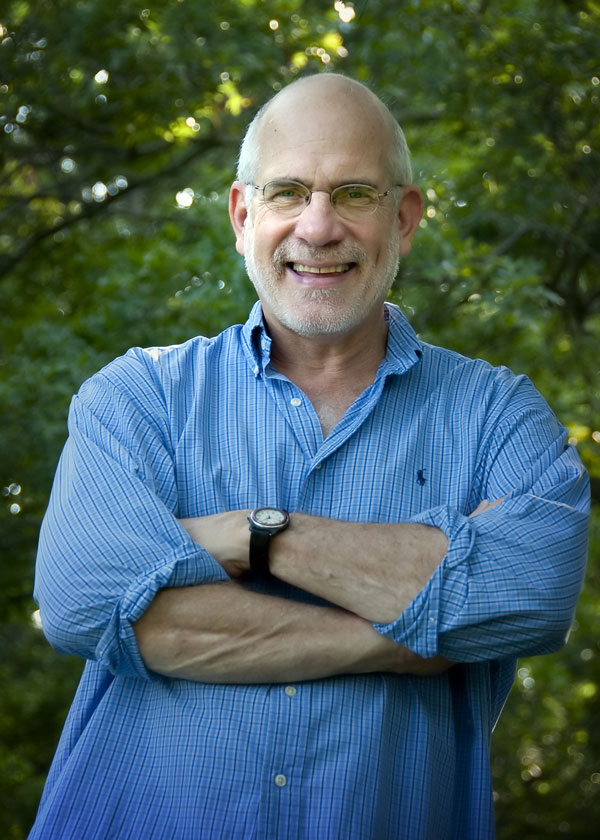Faculty and Visiting Faculty
Robert reeves

Associate Professor, Creative Writing
Robert Reeves is the author of two critically acclaimed novels, both published by
Crown, as well as short fiction, essays, and literary criticism. Kirkus Review hailed Doubting Thomas as "a zesty, classy original," and Patricia Holt of the San Francisco Chronicle called Peeping Thomas "funny, disturbing, and brilliant." Reeves, director of the Southampton Writers Conference,
has also taught writing at Harvard and Princeton.
FACULTY INTERVIEW:
What genre(s) do you write in?
Over the years, a little bit of everything. I wrote a couple of novels. I wrote a novella. I've written some short stories. I've written three screenplays and a handful of personal essays. And now I’m writing a series of essays that I hope will gather into a memoir.
What is the thing that excites you about the act of writing?
When I was younger, I thought writing was the highest calling, the best use of the time you’re given here on earth. A lot has changed since then. The novelist James Salter, a frequent visitor to our MFA program, began his last novel with this epigraph: “there comes a time when you realize that everything is a dream and only those things preserved in writing have any possibility of being real.” That’s what drives me now. I don't know whether writing is the highest calling or not, but if you don't write it down, it like it never happened.
Do you feel like your work is in conversation with other writers or work? If so,
who/what?
Most art has fingerprints from the past all over it. Growing up in the South, I really admired Southern writers. I would have given anything to write like Flannery O'Connor, or Carson McCullers, a few others. When I started teaching, I taught Southern literature. As I'm writing this memoir, my views have started to change. A lot of Southern writers left the South, got comfy jobs, and wrote about the poor folks back home. I'm coming around to a fairly cynical view on how literature functions within culture. You can make a case that it can be the most oppressive form of empathy. My work, I suppose, is both in conversation with and in opposition to the tradition of Southern literature.
What literary magazine would you recommend to your students?
Lou Ann Walker and I founded The Southampton Review, she as editor-in-chief and I as publisher, so I would be remiss not to recommend that. Otherwise, I would recommend students read the New York Times. Issues important to writers are constantly evolving, and the Times covers them all.
What is your writing process?
Generally, I think writers fall into two categories. One is the “how hard can it be” category. They write first drafts fairly quickly and then turn to the real work, which is revising. The other category is the “bleeding forehead writers.” They consider writing brute labor. “Donkey labor,” Eudora Welty called it. I’m in that category. I’m slow, managing one pitiful word at a time. My process is to stare at the blank page until my forehead bleeds.
How do you generate ideas?
Writing is not really about ideas. It's about stories. Ideas will make their way into your fiction or your poetry. Your subconscious will put them there, and you can’t keep them out. If you've written a fair amount, you can look back and see immediately what ideas are of continuous interest to you, your pre-occupations. Everything we write is an imprint of psyche onto the world, so we don't have to try to put ideas into our work.
The poet Richard Hugo had this important bit of advice: “think small.” I could plan six novels in the morning, that's the easy part. Think small, build your stories from the ground up, one thing at a time.
How do you manage when you get stuck?
Being stuck actually suggests as much of an obsession with writing as being productive. It's the flip side of the same coin. You wouldn't feel like you were blocked if you weren’t passionate about writing. I put on my bravest face and try to write it out. It can get ugly, but that’s all you can do. Keep writing. I’ve devoted my life to writing, and no one ever said it would be easy. It’s not.
Inspiration or perspiration?
Perspiration.
If you weren't a writer, what job would you have?
Writing is about building things. I've always had a woodworking shop, and I've learned a lot about writing there- about structure, symmetry, design, sequence. If I weren’t a writer, I’d be furniture builder, maybe a home builder. For me, designing something and building it, whether a novel or a table, is completely satisfying.
Do you have a writing tip for emerging writers?
What really matters in the end is that you finish your work. If you don't finish, you can't even buy a ticket to this lottery. Finish, finish, finish.
